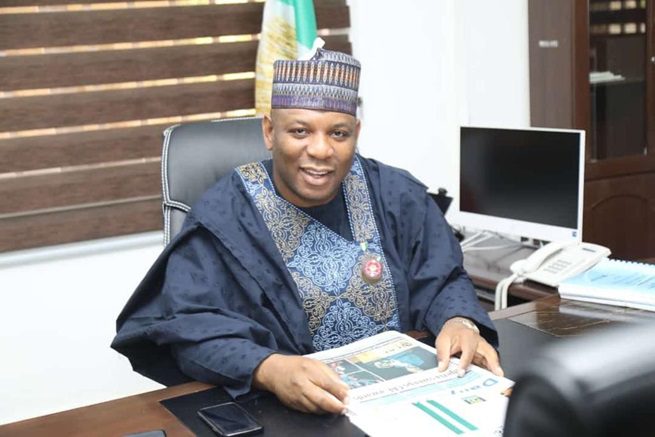Nigeria’s Minister of Steel Development, Shuaib Abubakar Audu, has announced the federal government’s decision to privatise the Ajaokuta Steel Company Limited (ASCL) along with its Iron Ore Mine in Itakpe as part of efforts to kickstart operations.
The announcement was made at the Ninth Nigeria Mining Week, held in Abuja.
The event, themed “From the Inside-Out: Building the Mining Sector to be the Cornerstone of Nigeria’s Economy,” highlighted the government’s comprehensive strategy to revitalise the mining sector.
Audu revealed that Nigeria currently spends over $4 billion annually on steel imports. To address this, the government has initiated plans to privatise Ajaokuta Steel alongside its associated Iron Ore Mine in Itakpe.
“The Federal Government has decided to privatise the foremost integrated steel plant, Ajaokuta Steel Company Limited (ASCL), at Ajaokuta and its captive Iron Ore Mine at Itakpe, and we have kick-started the process to ensure the accomplishment of the above,” the minister stated.
In addition, the Federal Government reiterated its commitment to transforming the mineral sector into a key driver of Nigeria’s economic diversification agenda.
Speaking on behalf of President Bola Tinubu, the Minister of Innovation, Science, and Technology, Uche Geoffrey Nnaji, highlighted the administration’s efforts to reshape the sector.
“Under the remarkable leadership of the Minister of Solid Minerals, Dr Dele Alake, our nation’s mining agenda has entered a new chapter.
“His dedication has reinvigorated our approach, addressing challenges with a vision that positions Nigeria’s mining sector as the backbone of economic growth. Together, we are shaping a mining sector that can stand as a global model of innovation, resilience, and sustainable development,” he said.
On his part, the Minister of Solid Minerals, Dr Dele Alake, reaffirmed the government’s commitment to reforming the sector under the Renewed Hope Agenda, which places mining at the heart of Nigeria’s economic strategy.
Speaking at the event, Alake reflected on his earlier pledge during the 8th Nigeria Mining Week and reiterated the administration’s focus on collaboration and reform.
“I did emphasise, then, that the seven-point agenda of strategic intervention in the sector emerged from critical research and analysis of the micro and macro components of the sector, enabling a holistic, global, and panoramic dissection of the gain and the pain of the sector,” he noted.
Alake further detailed recent accomplishments, including the prosecution of over 300 illegal miners and ongoing policy reforms aimed at boosting the sector’s economic contribution.
Chairman of the House Committee on Solid Minerals, Garza Jonathan Gbefwi, also called for increased funding in the 2025 budget, stressing the potential of the sector to alleviate Nigeria’s economic challenges.
Furthermore, Dr Orji Ogbonnaya Orji, Executive Secretary of the Nigeria Extractive Industries Transparency Initiative (NEITI), shared key findings from the 2023 Solid Minerals Audit Report.
He disclosed that Nigeria produced 95.07 million tonnes of solid minerals in 2023, generating N9.01 billion in royalties.
Exports totaled 4.32 million metric tonnes, valued at N117.29 billion. Despite this, the sector’s contribution to GDP stood at a modest 0.75%.

